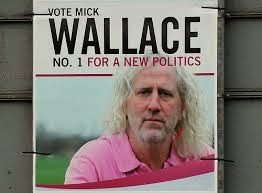 Let’s be blunt about it. The General Election campaign is
well underway. Labour has just had a
very successful conference in Killarney.
Since 1997 we’ve had just 3
elections in Ireland. In the 18 years
prior to 1997 we had 6 general elections.
Elections are the best opportunity to connect with the electorate on a
large scale. If there is a disconnect in
society between the citizen and representatives, it’s because there have been
less elections and politicians are getting on with the business that they are
being paid for, which is politics.
Let’s be blunt about it. The General Election campaign is
well underway. Labour has just had a
very successful conference in Killarney.
Since 1997 we’ve had just 3
elections in Ireland. In the 18 years
prior to 1997 we had 6 general elections.
Elections are the best opportunity to connect with the electorate on a
large scale. If there is a disconnect in
society between the citizen and representatives, it’s because there have been
less elections and politicians are getting on with the business that they are
being paid for, which is politics.
General Elections now almost are on a fixed term. This may
be politically convenient however I don’t think it is good for the
electorate. Issues which are resolved move
off the agenda with increasing speed. It
doesn’t make for feedback. And in the middle of all this we have the phenomena of celebrity politicians or high public profile candidates.
In Wexford the main issue in 2011 was the future of the
General Hospital. You don’t hear a word
about it’s future now, that question has been resolved, principally by Labour
being in office. The long planned and
long delayed improvements of the N25 and N11 are starting soon too. Every issue moves on and with a more diverse
media, it moves faster.
Some elected
representative only deals with the media and prioritise developing a profile over the needs of the electorate. The deputies profile replaces their work rate in the mind of the
electorate and becomes something that influences how someone votes. So a public representative who is a hard
constituency worker is dragged down to the level of a celebrity opponent.
Media elevation of celebrity into achievement converts
celebrity into political currency in a democracy. Indeed can celebrity be more important to the
electorate than achievement? If it doesn't matter what way a deputy dresses, then why should the media refer to it?
Could it mean that the next election will be
a fundamentally different election to anything we’ve ever had before. The issues debated may not be the issues that
voters decide on. Many of the TD’s that
might be elected may have to deal with issues for which the general public have
no idea where these new deputies stand. So as Lucinda Creighton sets out to reboot
Ireland with her pop up party driven of celebrity money men, how can this make
politics better for all than the some of the celebrities who were elected in 2011?
All politics is local, so when a national poll is
extrapolated back to a constituency the national trends aren’t reflected. A diverse political landscape in a small
country means that individuals that can top the poll in one part of the
country, would lose a deposit elsewhere.
The make up of the next government
will reflect the will of the people on election day but will politics develop
in the way that people expect? And at
what stage do you need an upgrade to version 2.0 rather than simply reboot?





